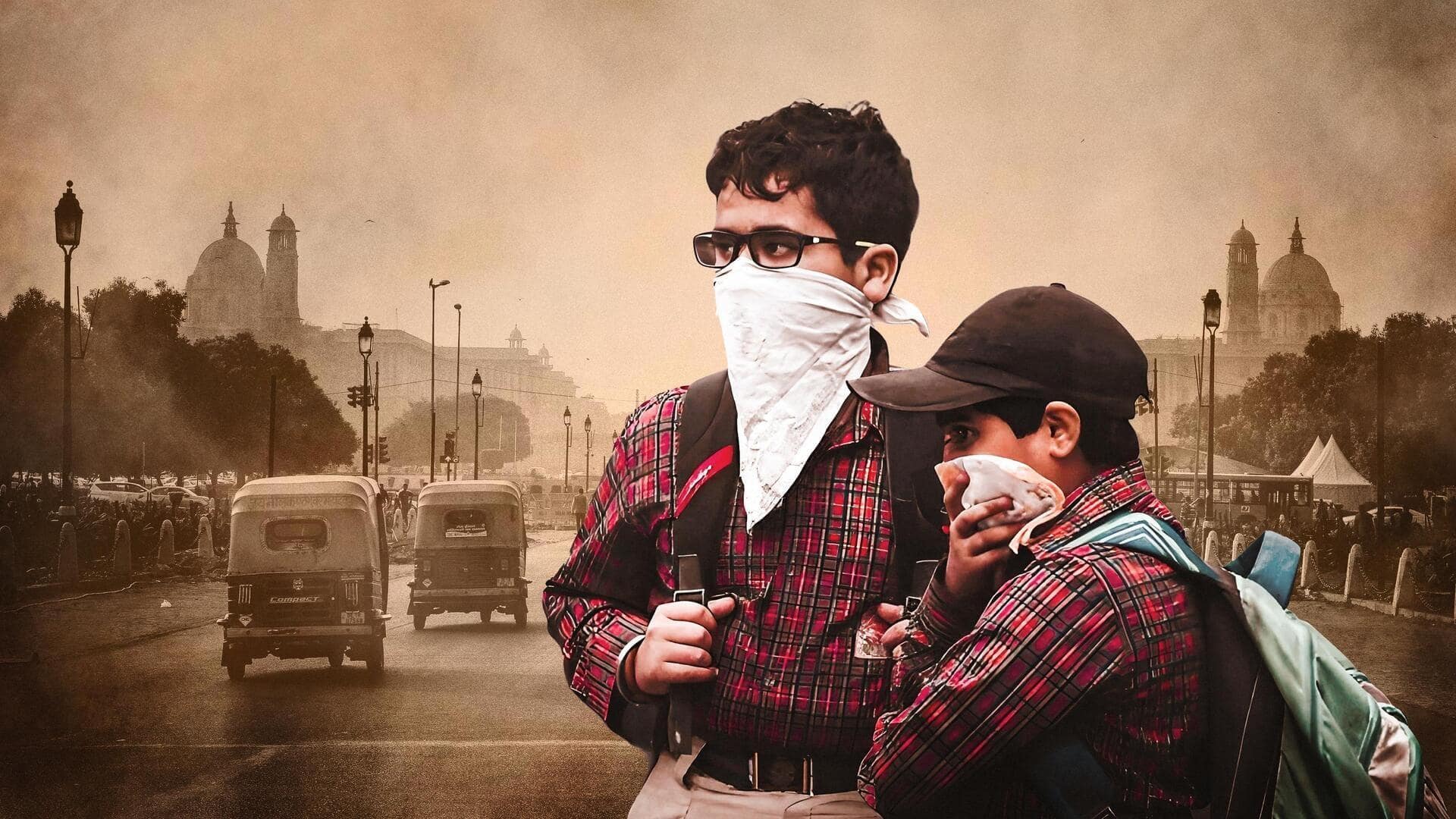
Delhi air pollution: AQI turns 'severe'; schools shut, curbs imposed
What's the story
Delhiites woke up to a smoggy Friday morning as the city's Air Quality Index (AQI) dropped to 460 at 7:00am, the worst so far this year. Delhi's AQI was recorded at 422 at 10:00pm on Thursday. The AQI has been gradually worsening over the last few days. Any AQI over 400 is considered in the "severe" category. On Thursday, an air emergency was declared in the national capital as its air quality index plummeted.
Context
Why does this story matter?
Delhi is the worst polluted city in India, and a recent report claimed that its citizens lost 11.9 years of their lives due to toxic air. With Diwali just around the corner, the capital city and neighboring regions are on high alert. Notably, the Delhi Pollution Control Committee (DPCC) on October 10 announced a ban on the manufacturing, sale, and storage of firecrackers until January 1. Every year, Delhiites face the issue of smog—a toxic mixture of fog and smoke.
Details
Will discuss effective implementation of Stage III of GRAP: Rai
Amid the worsening pollution situation, Delhi Environment Minister Gopal Rai called for a meeting on Friday at 12:00pm to discuss the effective implementation of Stage III of GRAP. Additionally, authorities in Gurugram, Noida, and other NCR regions have implemented stringent pollution-control measures. The Gurugram District Magistrate has issued an order under Section 144 of the Criminal Procedure Act, 1973, to combat air pollution in Gurugram.
Twitter Post
Visuals of smoggy Friday morning in Delhi
#WATCH | Air Quality in Delhi deteriorates to 'Severe' category.
— ANI (@ANI) November 3, 2023
Visuals around Delhi University area and Rajghat. pic.twitter.com/yO4pkjzSiJ
Know more
Here's how air quality index is calculated
According to the System of Air Quality and Weather Forecasting and Research (SAFAR), an AQI between 0-50 is considered "good." Meanwhile, air quality between 51-100 and 101-200 is considered "satisfactory" and "moderate." Furthermore, an AQI of 201-300 is "poor," 301-400 is "very poor," 401-500 is "severe," and anything above 500 is labeled as "severe plus."
What Next?
Delhi schools closed; construction ban, car curbs in place
On Thursday, Delhi Chief Minister Arvind Kejriwal took to social media and announced that all government and private primary schools in the capital will remain closed on Friday and Saturday, given the rising pollution levels. The Delhi government also banned non-essential construction activities and the plying of BS-4 diesel and BS-3 petrol cars in Ghaziabad, Gurugram, Faridabad, Delhi, and Gautam Budh Nagar areas.
Insights
All you need to know about Centre's GRAP
The GRAP, the central government's air pollution control plan implemented in the region during the winter, comes into four stages. While Stage I becomes active between AQI 201-300 (poor category), Stage II becomes operational at AQI 301-400 (very poor category). Furthermore, Stage III is AQI 401-450 (severe category), and Stage IV is online when the AQI is above 450 (severe plus category).
More details
How Haryana, Punjab play big role in Delhi's air pollution
The air pollution in Delhi peaks between November 1 and November 15, when farmers in Haryana and Punjab increase stubble burning. The Commission for Air Quality Management (CAQM) reported that the incidents of stubble burning in both Haryana and Punjab have gone down since September 15. However, there was a significant spike over the past couple of days.